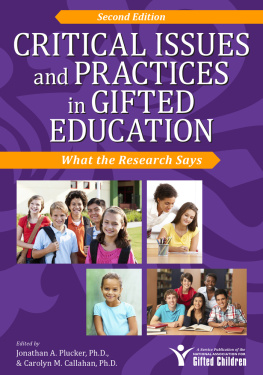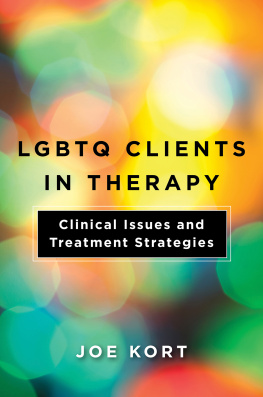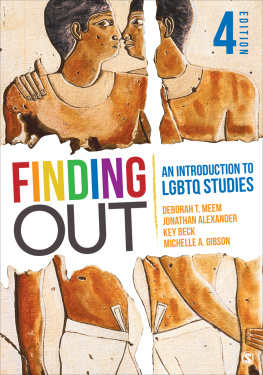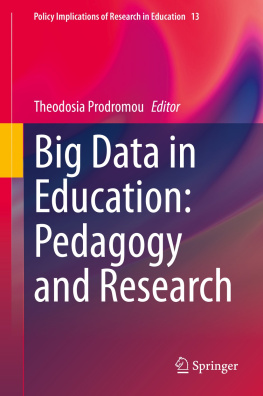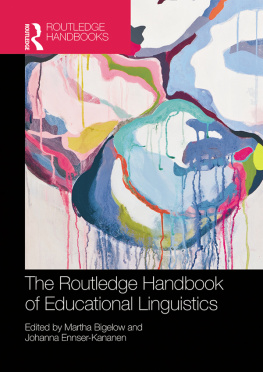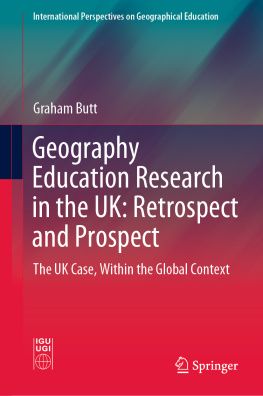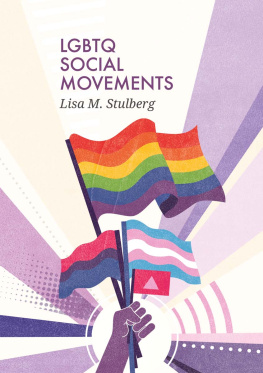Chapter 1
The increased visibility of LGBTQ people in schools and in education is changing how we think about school curriculum issues, sexuality, definitions of family, and attitudes toward these issues. It is expanding how we conceptualize, develop, and use education research on LGBTQ issues and topics. School leaders, teachers, parents, and policy makers need information and knowledge to understand the social, psychological, structural, and school climate factors that affect LGBTQ students and others at the individual level (micro level) and to understand how LGBTQ issues affect the school curriculum and structure (macro level). Findings and discussions from scholarly education research can help schools expand to serve all students and become places for learning about and exploring LGBTQ people and their communities.
College and university campuses have been at the forefront of giving voice to the issues and challenges faced by LGBTQ students. Campus organizations provide social support and psychological counseling, and campus advocacy organizations and policies protect LGBTQ students, faculty, and staff. Colleges provide a platform for researchers to study students current and past experiences, attitudes toward LGBTQ issues, and perceptions related to education. Beyond the campus experience, colleges and universities are now investing in academic centers and research to increase our knowledge and understanding of LGBTQ people, topics, and communities.
Call for Ideas
In advance of the workshop, participants each contributed to the literature list through memoranda that focused on salient studies and findings and provided important citations to research. These memoranda highlighted work within participants particular research domains and expertise. The memos also served as catalysts for the workshop conversation and helped to emphasize issues addressed in the broad-based call from the education research community. The discussions and memos from the workshop, the literature collection, and the Call for Ideas all contributed to the development of this report.
Each of the LGBTQ components and definitions can reflect cultural, political, and social agendas that describe specific issues, individuals, and groups but also can be misaligned with the values, beliefs, and attitudes of others who may have similar identity, attraction, gender expression, or same-sex behavior. Thus, there is not a universal term that necessarily captures everyone. The authors in this report choose to use LGBTQ to describe the population in an all-encompassing sense. However, when referencing the literature or when talking about a particular group such as gay or transgender people or those who have same-sex attraction, the authors use the more specific term and limit the use of acronyms.
Much of the education research on LGBTQ issues is framed using a heteronormative theoretical perspective. This research starts with the notion that traditional male-female relationships are the norm or standard that shapes and dominates social institutions such as the family, politics, religion, public health, and education (Mayo, 2007; Renn, 2010). This perspective organizes identities into categories that are hierarchical binaries, such as male-female and hetero-sexual-homosexual, with the male heterosexual perspective prevailing as the most powerful and superior perspective. It is this binary dominance that creates the standard by which all other areas are judged. This theoretical perspective supports patriarchy and male dominance throughout society. Within the heteronormative structure, other notions of gender, marriage, or sexuality are not an option and are viewed as deviant or criminal (Carpenter & Lee, 2010).
Until the 1970s many K12 schools did not teach anything related to sexuality beyond a health education curriculum. Students learned about the birds and the bees, focusing exclusively on the traditional reproductive process (Irvine, 2004). Family dynamics were centered around heterosexual norms of marriage and child-rearing, and any deviations were seen as perverted and often scorned (Foucault, 1990). However, sex education evolved as lifestyles, cultural norms, and family dynamics changed, reproductive health topics expanded, and diverse groups of students entered our schools. The onset of AIDS in the 1980s demanded that schools address sex education and discuss sexuality with an ever-growing and changing student population. Some of this research is the subject of the current report. Heteronormative perspectives were still the most common: Abstinence-only sex education promoting male-female relationships, heterosexual marriage, and traditional family structures dominated many schools curricula. But world events precipitated greater visibility of LGBTQ students, teachers, and issues affecting schools, and led researchers to produce a body a knowledge addressing LGBTQ issues.
Scholars and researchers use queer theoretical frameworks to discuss and produce knowledge across many areas in education, including the curriculum (King & Schneider, 1999; Morris, 1998; Pinar, 1998), teaching methods (Luhmann, 1998), youth identity development (Davis, 1999), and the family (Letts & Sears, 1999). Education researchers can add a queer theoretical approach to their work by deconstructing traditional gender and sex categories that hinder their research and not letting homophobic attitudes and conceptualizations cloud their thinking.
Elements of intersectionality, specifically class, race, and gender, are essential to education research, given that schools and educational issues are largely shaped by and reflective of the social context in which they exist (Bowles & Gintis, 1976). For example, among African Americans, Latinos, and other racial and ethnic minorities, the patterns of residential, racial, class, and school segregation are very important in understanding how we address LGBTQ issues. Even today, after decades of diversity efforts, students, regardless of their race, are likely to attend schools that are racially homogenous. Most Black and Latino children attend K12 schools that have a largely minority student population, and White students tend to be the majority in the schools they attend (Mickelson, 2014; Orfield, Frankenberg, Ee, & Kuscera 2014). Even among schools that are diverse along racial and class lines, students tend to self-segregate and form homogenous peer and social networks (Orfield et al., 2014). Beyond these informal groups and interactions, students course taking, academic placement levels, and ultimately achievement and postsecondary plans show distinct race and class differences (Domina, Conley, & Farkas, 2011; Lucas, 1999). Thus, the intersection of class, race, and other elements can affect how students and schools experience and understand LGBTQ issues. Often, cultural and religious attitudes toward homosexuality, homophobic ideas, and general negative perceptions of LGBTQ issues that exist in the broader community are merely reflected in the school environment. Researchers need to be cognizant of these varied experiences when studying students and schools.



